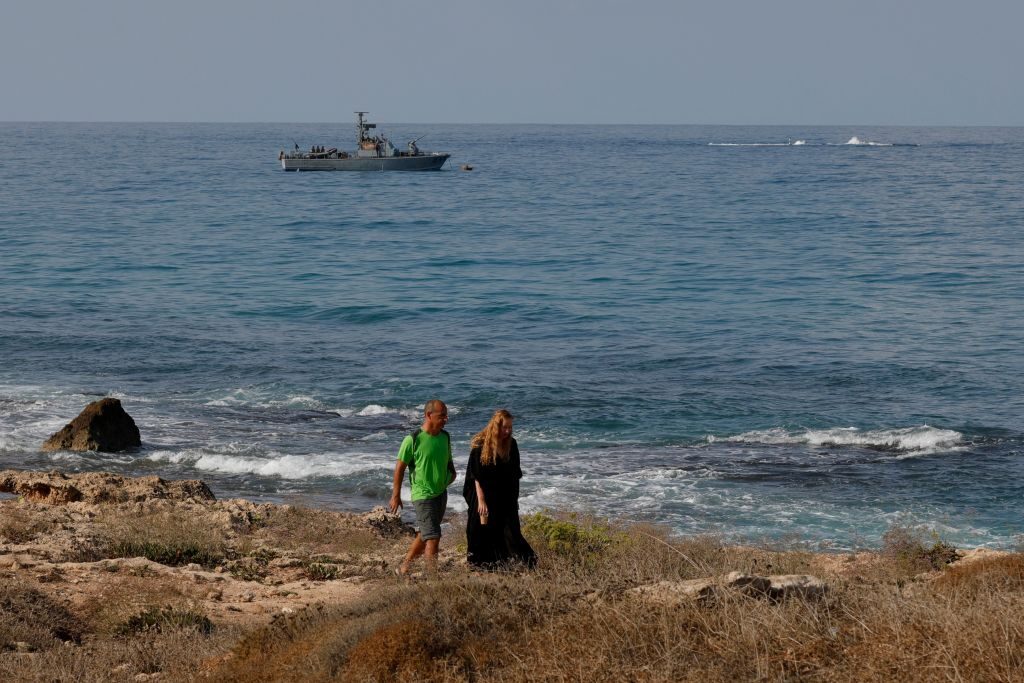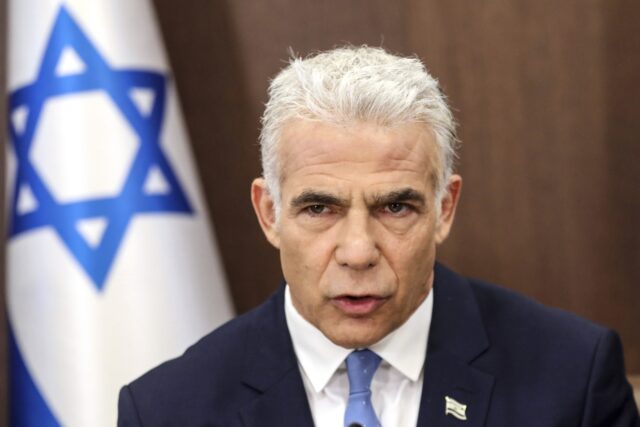Prime Minister Yair Lapid on Tuesday said Israel and Lebanon had reached a “historic” agreement to resolve a decades-long maritime border dispute, saying it would prove a boon to the Israeli economy.
“This is an historic achievement that will strengthen Israel’s security, inject billions into Israel’s economy, and ensure the stability of our northern border,” Lapid said in a statement.
The deal looked set to falter only last week when Israel said it would not give in to Lebanese demands to amend the U.S.-drafted agreement.
Marathon talks took place over the weekend between the two sides via Biden administration’s energy envoy, Amos Hochstein, the statement from Lapid’s office said.
Lapid said he will convene the Security Cabinet as well as a special meeting of the government to present the deal on Wednesday.
Earlier on Tuesday, Israel’s national security chief Eyal Hulata and head of the negotiating team in the maritime talks, said the final agreement meets all Israel’s demands.
“All our demands were met, the changes that we asked for were corrected. We protected Israel’s security interests and are on our way to an historic agreement,” Hulata, said in a statement.
Lebanon’s chief negotiator, Bou Saab, also said the agreement satisfied Lebanon’s concerns.

People walk along the beach as a navy vessel patrols the Mediterranean waters off Rosh Hanikra, known in Lebanon as Ras al-Naqura, on the Israeli side of the border between the two countries, on October 7, 2022. (JALAA MAREY/AFP via Getty)
“If everything goes well, Amos Hochstein’s efforts could imminently lead to a historic deal,” Saab told Reuters, referring to the Biden administration’s envoy who has served as mediator between Israel and Lebanon in a months-long attempt at shuttle diplomacy to resolve the dispute.
The deal will allow energy production from the offshore Karish gas field, which is the crux of the dispute between the two nations. While Israel maintains that the gas field is within its territorial waters, Lebanon claims it’s partially within theirs. The two countries, which are technically still at war, never demarcated maritime borders.
Hezbollah, the terror group that effectively controls Lebanese politics, has threatened war over Israel’s decision to develop the Karish gas field and has attacked the rig twice in recent months. The Israeli military has intercepted several Hezbollah drones headed for the rig in over the summer.
Critics in Israel and the U.S. have blasted the deal, with former prime minister and leader of the opposition, Benjamin Netanyahu, calling it a surrender to Hezbollah.
Lapid “is giving Hezbollah sovereign territory of the State of Israel with a huge gas reservoir,” Netanyahu charged.
Professor Eugene Kontorovich, director of international law at the Jerusalem-based Kohelet Policy Forum, told Breitbart the deal was a last ditch attempt by Lapid to gather points ahead of Israel’s upcoming election next month.

A U.N. vehicle drives past a poster of the head of the Lebanese Shiite movement Hezbollah Hassan Nasrallah, with the phrase “we shall pray in Jerusalem”, in the southern Lebanese border village of Adaisseh on October 7, 2022. (MAHMOUD ZAYYAT/AFP via Getty)
In a statement released Tuesday, Kontorovich said the announcement meant “Hezbollah now overrides Israel’s democracy.”
“Transferring any national territory requires Knesset approval in Israeli law, as well as the constitutions of countries from the U.S. to Egypt. The reason the government claims it must do this now, before elections or a Knesset vote, is that this is Hezbollah’s demand to prevent war,” he said.
The deal may still need Knesset approval to go ahead. Last week, Israel’s High Court of Justice on Monday ruled that Lapid’s interim government must respond to a petition calling for parliamentary approval on a controversial U.S.-brokered maritime deal with Lebanon.

COMMENTS
Please let us know if you're having issues with commenting.